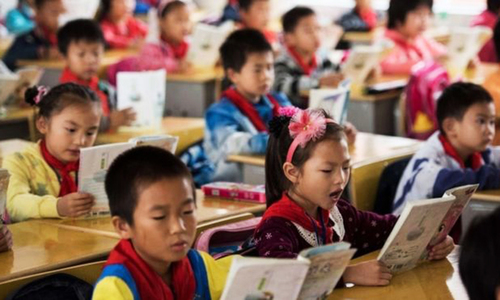All Chinese mosques should raise the national flag to “promote a spirit of patriotism” among Muslims, the country's top Islamic regulatory body has declared, as the Communist Party seeks to tighten its grip on religion.
Flags should be hung in a “prominent position” in all mosque courtyards, the China Islamic Association said in a letter published on Saturday on its website.
This would “further strengthen the understanding of national and civic ideals, and promote a spirit of patriotism among Muslims of all ethnic groups”, it read.
Mosques should also publicly display information on the party's “core socialist values”, and explain them to devotees via Islamic scripture so that they will be “deeply rooted in people's hearts”, it said.
The China Islamic Association is a government-affiliated body and has the sole power to accredit imams.
The letter comes on the heels of China's newly revised Regulations on Religious Affairs, which came into effect in February and prompted rights groups to voice concern for religious freedoms.
The new regulations intensified punishments for unsanctioned religious activities and increased state supervision of religion in a bid to “block extremism” and tackle what Beijing sees as internal threats.
Mosque staff should organise study of the Chinese constitution and other relevant laws — particularly the new religious regulations, the letter said.
They should also study Chinese classics and set up courses on traditional Chinese culture, while being sure to focus only on Chinese Muslim sages rather than those of foreign origin, it added.
The goal, it said, was for mosques to become “a solid platform for the study of the party and the country's laws and policies” in addition to houses of worship, and thereby develop among Muslims “an understanding of a common Chinese identity” with the majority Han.
Islam is one of the five religions officially recognised by the atheist Communist party. The country is home to some 23 million Muslims.
But restrictions on them are intensifying, particularly in the northwestern province of Xinjiang which is home to the mostly Muslim Uighur minority, where there are bans on beards and public prayers.
Tens of thousands of Uighurs have been sent to shadowy detention and re-education centres for perceived offences and can be held indefinitely without due process.
Authorities say the restrictions and heavy police presence in Xinjiang are intended to control the spread of extremism and separatist movements, but analysts say the region is becoming an open-air prison.









































